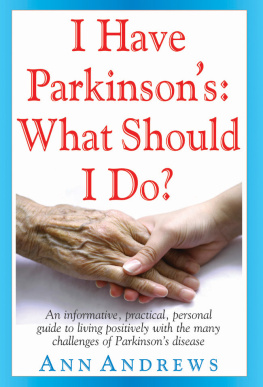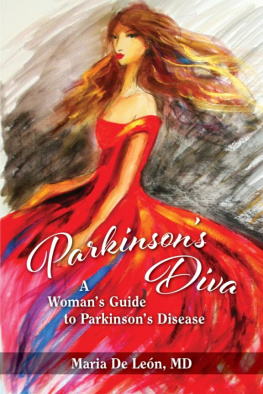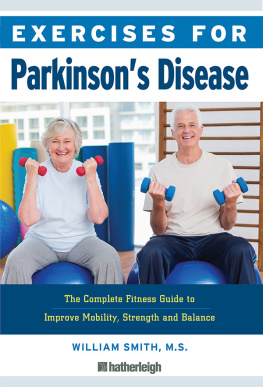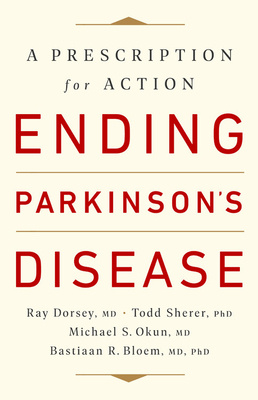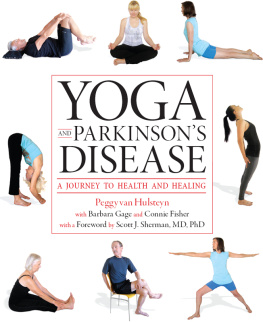Can I tell you
about Parkinsons
Disease?
Can I tell you about?
The Can I tell you about...? series offers simple introductions to a range of limiting conditions. Friendly characters invite readers to learn about their experiences of living with a particular condition and how they would like to be helped and supported. These books serve as excellent starting points for family and classroom discussions.
other subjects covered in the Can I tell you about? series
ADHD
Asperger Syndrome
Asthma
Dementia
Dyslexia
Epilepsy
OCD
Selective Mutism
Stuttering/Stammering
Can I tell you
about Parkinsons
Disease?
A guide for family, friends and carers
ALAN M. HULTQUIST
Illustrated by Lydia T. Corrow
Jessica Kingsley Publishers
London and Philadelphia
First published in 2013
by Jessica Kingsley Publishers
116 Pentonville Road
London N1 9JB, UK
and
400 Market Street, Suite 400
Philadelphia, PA 19106, USA
www.jkp.com
Copyright Alan M. Hultquist 2013
Illustrations copyright Lydia T. Corrow 2013
All rights reserved. No part of this publication may be reproduced in any material form (including photocopying or storing it in any medium by electronic means and whether or not transiently or incidentally to some other use of this publication) without the written permission of the copyright owner except in accordance with the provisions of the Copyright, Designs and Patents Act 1988 or under the terms of a licence issued by the Copyright Licensing Agency Ltd, Saffron House, 610 Kirby Street, London EC1N 8TS. Applications for the copyright owners written permission to reproduce any part of this publication should be addressed to the publisher.
Warning: The doing of an unauthorised act in relation to a copyright work may result in both a civil claim for damages and criminal prosecution.
Library of Congress Cataloging in Publication Data
Hultquist, Alan M.
Can I tell you about Parkinsons disease? : a guide for family, friends, and carers / Alan M. Hultquist ;
illustrated by Lydia T. Corrow.
pages cm
Audience: 7+
ISBN 978-1-84905-948-0 (alk. paper)
1. Parkinsons disease--Juvenile literature. 2. Parkinsons disease. I. Corrow, Lydia T., illustrator. II.
Title.
RC382.H85 2013
616.833--dc23
2013010975
British Library Cataloguing in Publication Data
A CIP catalogue record for this book is available from the British Library
ISBN 978 1 84905 948 0
eISBN 978 0 85700 767 4
This book is dedicated to Brendan
Acknowledgements
I offer thanks to my former colleagues Liz Audette, the wonderful J. and Nancy Roberts James. They read an early draft of a different, but related, manuscript and provided the encouragement that kept me working. I also need to thank my longtime friend Robin Stander for her help in getting the final draft ready.
A special thank you goes to Diane L. Church, PhD, at the Dartmouth-Hitchcock Medical Center (DHMC). I emailed the New Hampshire American Parkinson Disease Association Information and Referral Center at DHMC asking if anyone there might be willing to check over an early draft. Dr Church responded immediately and got back to me within a few hours with suggestions, comments and answers to questions. Thank you for responding to a complete strangers request that someone read his manuscript. I do not know if you realise just how rare and valuable your response to that situation was.
My husband, Brendan Hadash, has been at my side all through this process. You had no idea what you were getting into when we first met in 1983. In addition to your love and support, your help with this book was invaluable.
Finally, although people offered comments and suggestions about the manuscript, the responsibility for the final content, including any errors and omissions, is entirely mine.
This book is not intended as a source of medical advice. There are many conditions that can look like Parkinsons disease. Any diagnosis and treatment must be done by a qualified and licensed professional.
Contents
I usually call it Parkinsons, or just PD for short. Id like to tell you what its like, what it feels like and how you might help me.
W hen we first meet, you might not notice there are things about me that are different from other adults. But after a few minutes, youll probably start to see that I move and act a bit differently from what you expect. Like everyone else, people with PD are individuals, and PD affects each person differently. So, other adults with Parkinsons will be like me in some ways, but not in others.
Having Parkinsons means I dont do some things as well as I used to. My main problems are with remembering, being organised, sleeping and getting my body to do what I want it to do. But I can still do other things without difficulty. How easily Im able to do something sometimes depends on whether or not my medication is working.
Parkinsons disease is a medical problem that affects my brain, but I wasnt born with it. No one is.
E veryones body is made of cells, which are very, very tiny. I have PD because some of my brain cells died. Those cells used to make one of the chemicals my brain needs to communicate with my body. Without enough of that chemical, its now harder for my brain to work properly and tell my body what to do.
I started having trouble when I was in my 40s, and a doctor told me I had PD when I was 50 years old. She looked for four signs or symptoms to find out if I had PD. These were shaking, slow movement, stiff muscles and difficulty with balance. But PD can also cause many other problems.
Parkinsons gets worse over the years, but Ill be telling you about some of the things I can do to help me stay active for a long time.
Its important for you to know that you cant catch PD the way you catch a cold or flu. You can shake my hand and drink from the same glass as I do, but you wont get Parkinsons.
Some parts of my body shake a lot.
S haking is one of the most common signs of Parkinsons disease, but not everyone with PD shakes.
I first knew I needed to see a doctor because my right hand began to shake when I wasnt actively using it. In the beginning, my hand only shook occasionally, but over the years it began to shake more often. The medicine that I now take helps. If I dont take it, my right hand will shake all the time while Im awake. However, even when I take my pills, my hand still shakes if Im nervous, worried, angry, really happy or excited. My legs, left hand and head have started to shake sometimes too.
Actively using my hand stops the shaking. So, it might shake when Im walking or holding a book, but not when Im painting or using a keyboard. If my hand is shaking for any reason, I can make it stop by fidgeting with something, like a coin or a small ball. However, as soon as I stop actively using my hand, the shaking starts again.








